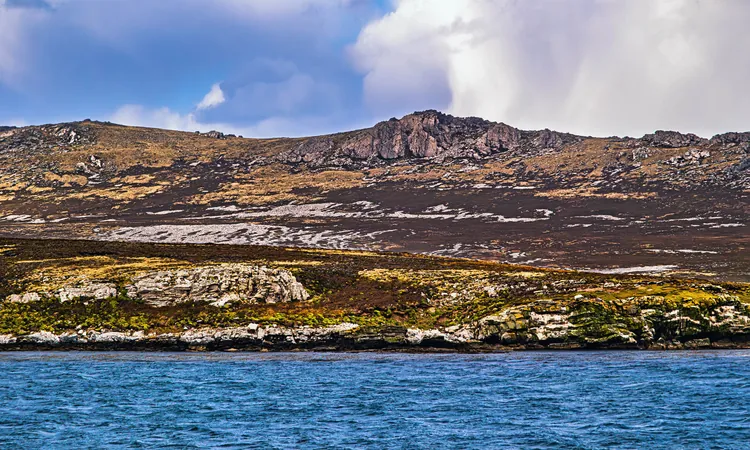
Unlocking the Secrets of the Falklands: An Ancient Rainforest Unearthed!
2025-09-14
Author: Li
A Surprising Discovery in the Falkland Islands
The Falkland Islands, renowned for their brisk winds and vast grasslands, have just revealed a jaw-dropping secret: beneath their treeless visage lies evidence of a lush ancient rainforest! Recent pollen findings suggest that these islands once thrived with a cool-temperate forest, rich with biodiversity and moisture.
Accidental Unearthing during Construction
The thrilling discovery was made during construction work in Stanley, the capital of the islands. Workers stumbled upon a dark, woody layer beneath the surface, revealing a buried forest bed—a treasure trove of sediment preserved in time, laden with microscopic pollen grains and fragments of ancient wood.
Evidence of a Forest Below
In this remarkable find, scientists gathered three critical types of evidence: pollen grains, spores, and fossilized wood chunks. The pollen, remarkable for its longevity, retains its distinctive shape for millions of years when trapped in the right conditions, while wood fragments reveal vital information about the ancient trees and their growing environments.
A Glimpse into the Past
Dr. Zoë Thomas from the University of Southampton led a team to analyze the site, racing against time to collect samples before they deteriorated. The pristine preservation of tree remains was so astonishing that they resembled driftwood, bringing the intriguing past of these islands to life.
Ancient Ecosystems Revealed
Under the microscope, the researchers uncovered a mix of ancient species, including southern beech and podocarps—conifers that flourish in damp environments, akin to the moss-covered forests of southern Chile today. Their presence in the Falklands fossil record underscores the region's ancient climate, once rich in rainfall.
Mapping Time: The Age of the Forest Fossils
To date this prehistoric habitat, researchers compared the Falklands' pollen layers to well-documented records from South America. This meticulously matched timeline confirms that the forest thrived in the mid-to-late Cenozoic era, over millions of years ago, during warmer intervals that allowed rainforests to expand into higher latitudes.
Nature's Changes Over Time
Islands like the Falklands have a vibrant ecological history where species can thrive in bursts of favorable conditions. However, as climates shifted toward cooler, windier conditions, these lush forests dwindled, with grasslands currently dominating the landscape due to the islands' thin and peaty soils.
The Importance of This Discovery
Understanding this ancient ecosystem is crucial for climate scientists. The findings offer a benchmark for climate models, indicating what conditions supported the rainforest. If models accurately reflect these ancient climates, they can help navigate our understanding of climate dynamics today and in the future.
Conclusion: A Window into Earth's Climate History
This groundbreaking research unveils a stunning pollen record from a once-thriving forest nestled beneath Stanley. The evidence paints a vivid picture of a cooler, wetter ecosystem filled with life—essential for understanding how climate and ecosystems evolve over geologic time. The full study is published in the journal Antarctic Science.


 Brasil (PT)
Brasil (PT)
 Canada (EN)
Canada (EN)
 Chile (ES)
Chile (ES)
 Česko (CS)
Česko (CS)
 대한민국 (KO)
대한민국 (KO)
 España (ES)
España (ES)
 France (FR)
France (FR)
 Hong Kong (EN)
Hong Kong (EN)
 Italia (IT)
Italia (IT)
 日本 (JA)
日本 (JA)
 Magyarország (HU)
Magyarország (HU)
 Norge (NO)
Norge (NO)
 Polska (PL)
Polska (PL)
 Schweiz (DE)
Schweiz (DE)
 Singapore (EN)
Singapore (EN)
 Sverige (SV)
Sverige (SV)
 Suomi (FI)
Suomi (FI)
 Türkiye (TR)
Türkiye (TR)
 الإمارات العربية المتحدة (AR)
الإمارات العربية المتحدة (AR)